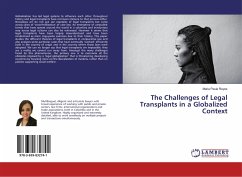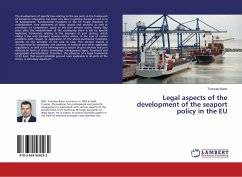
The Challenges of Legal Transplants in a Globalized Context
Versandkostenfrei!
Versandfertig in 6-10 Tagen
24,99 €
inkl. MwSt.

PAYBACK Punkte
12 °P sammeln!
Globalization has led legal systems to influence each other throughout history and legal transplants have not been immune to that process either. Nowadays we do not just see examples of legal transplants but come across cases of 'cross-fertilization' of case law. An emergence of unstudied trends that have spread around the world in a voluntary and involuntary way across legal cultures can also be witnessed. However it seems that legal transplants have been largely misunderstood and have been condemned as mere copy-paste exercises due to their history. This paper studies the different theories ...
Globalization has led legal systems to influence each other throughout history and legal transplants have not been immune to that process either. Nowadays we do not just see examples of legal transplants but come across cases of 'cross-fertilization' of case law. An emergence of unstudied trends that have spread around the world in a voluntary and involuntary way across legal cultures can also be witnessed. However it seems that legal transplants have been largely misunderstood and have been condemned as mere copy-paste exercises due to their history. This paper studies the different theories of legal transplants in comparative law and also analyses some particular cases that have eventually 'worked' efficiently both in the country of origin and in the country where those laws were adopted. We can no longer say that legal transplants are impossible; they are a reality we cannot run away from. Amongst the many challenges faced by this phenomenon, the primary one is to overcome allthe obstacles imposed by a 'legal globalization' that is threatening developing countries by focusing more on the liberalization of markets, rather than on policies supporting social welfare.












